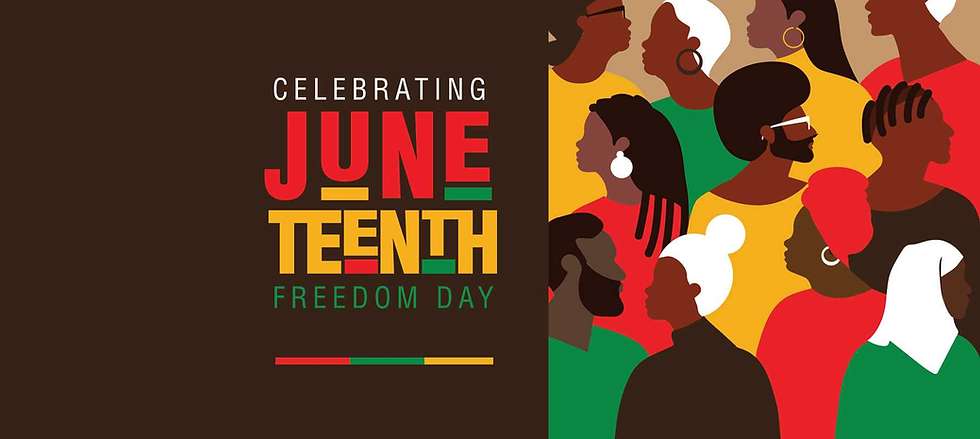Juneteenth
- ptessslmc

- Jun 5, 2024
- 2 min read
Juneteenth History
Juneteenth National Independence Day celebrates the emancipation of enslaved African-Americans. This day stands as a reminder of the struggle for freedom and the continued journey toward racial equality in the country. It is an important time for reflection, education, and appreciation of African-American history and culture, as well as for honoring the sacrifices made by many generations in the pursuit of a more equitable society.
The origins of Juneteenth can be traced back to June 19, 1865, when Union General Gordon Granger and his troops arrived in Galveston, Texas. Upon their arrival, General Granger announced the enforcement of General Order No. 3, which declared that all slaves in the area were to be set free, in accordance with the Emancipation Proclamation that President Abraham Lincoln had signed more than two years prior. The announcement sparked joyous celebrations among the newly freed African-Americans and their allies, and the occasion gradually grew in prominence over the ensuing decades.
Today, Juneteenth National Independence Day is observed across the United States through a variety of events and activities. These may include parades, festivals, educational workshops, concerts, and family gatherings, all of which serve to promote a deeper understanding and unity among Americans. In 2021 President Biden signed into law a bill establishing Juneteenth as a federal holiday. Juneteenth National Independence Day is observed June 19th annually.
Juneteenth facts & quotes
Since Juneteenth is now a recognized Federal Holidays, many federal offices are closed on this day. Federal government employees are typically off on this day.
Juneteenth is an official state holiday in Texas, meaning that Texans do not work.
Juneteenth is a combination of the words June and Nineteenth in reference to the date that slaves were freed in Texas.
The people of Texas are informed that, in accordance with a proclamation from the Executive of the United States, all slaves are free. This involves an absolute equality of personal rights and rights of property between former masters and slaves, and the connection heretofore existing between them becomes that between employer and hired labor. The freedmen are advised to remain quietly at their present homes and work for wages. They are informed that they will not be allowed to collect at military posts and that they will not be supported in idleness either there or elsewhere - General Gordon Granger, Major General of the United States Army, Issued June 19, 1865.
...I do order and declare that all persons held as slaves within said designated States, and parts of States, are, and henceforward shall be free; and that the Executive government of the United States, including the military and naval authorities thereof, will recognize and maintain the freedom of said persons - US President Abraham Lincoln, The Emancipation Proclamation, January 1, 1863




Comments